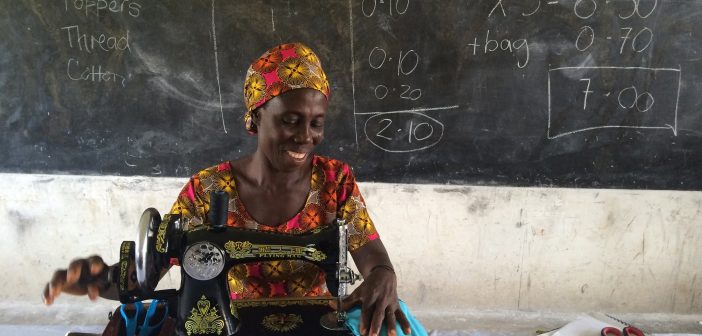COVID-19: Female Entrepreneurs in Developing Countries

SEATTLE, Washington — As COVID-19 upends financial markets worldwide, many informal workers remain quarantined without any social or financial support. Conversely, female entrepreneurs in developing countries risk COVID-19 exposure due to crowded workspaces and scarce access to potable water and healthcare. Many such workers must keep working even if they do not receive pay. While female workers struggle to stay safe, women entrepreneurs in developing countries are pivoting their often unpaid domestic skills into start-up businesses.
The Inequality of Informality
The informal economy (industries such as hospitality, custodial services, cooking and eldercare) employs up to 70% of women working in developing countries. Combined with the absence of employment and social protections typical of higher-paying and traditionally masculine occupations, that statistic means these women face increased chances of living in extreme poverty as a result of COVID-19 related job loss.
Global health crises disproportionately affect impoverished women, as one can see from the 2014 Ebola epidemic when massive job losses hit sub-Saharan African countries. In Liberia, where 85% of day-traders were women, preventative measures severely impacted their economic security — even after recovery from Ebola began. Women face similar dangers during the COVID-19 pandemic, especially because the virus impacts every region of the world.
Women comprise over 90% of the informal workforce in Southeast Asia. During the pandemic, these women face daily uncertainties due to forced border closures, quarantine measures and the standstill of tourism markets. Female workers in developing countries like Vietnam, Malaysia, Laos and the Philippines, who serve wealthier communities like Hong Kong, found themselves stranded once border restrictions began. Evidently, women are at great risk as the pandemic progresses.
Investing in Women is Investing in Global Health
One of the most effective preventative solutions for COVID-19 is also a way to aid vulnerable women: getting cash to female entrepreneurs in developing countries. Gender-focused social legislation, donations to groups that finance women-owned businesses and programs that offer financial literacy training all help to funnel vital capital to overlooked and underserved women around the world.
Interviews that Woman in Informal Employment: Globalizing and Organizing (WIEGO) conducted have shown that others often do not see informal work by women as legitimate economic contributions. This attitude partly explains why statistics regarding female entrepreneurs in developing countries are often incomplete or absent, making it hard to grasp their true economic importance. WIEGO focuses on increasing the visibility of such vendors, advocating for recognition and legal rights for this vital part of the economy.
While female workers and entrepreneurs are always vital to developing economies, this is especially true as women start using their skills to address COVID-19. For instance, an Iraqi nonprofit called Hanya is an entrepreneurial collective of five women turning their tailoring skills into vital supplies. Hasiba, a founding member whose daughter inspired the name for the collective, explained the inspiration for Hanya: “I was sewing traditional Kurdish clothes for my children when they wanted to go and play in a garden near my house. So, I decided to sew them masks.”
Supporting female workers and investing in women’s entrepreneurial ventures directly helps contain the COVID-19 pandemic. An informed and mindful approach to combating the virus means supporting those populations most at risk of infection and economic consequences. That means organizations must do everything they can to support women around the world, especially those working to mitigate destruction from the virus.
Source : Borgen Magazine

